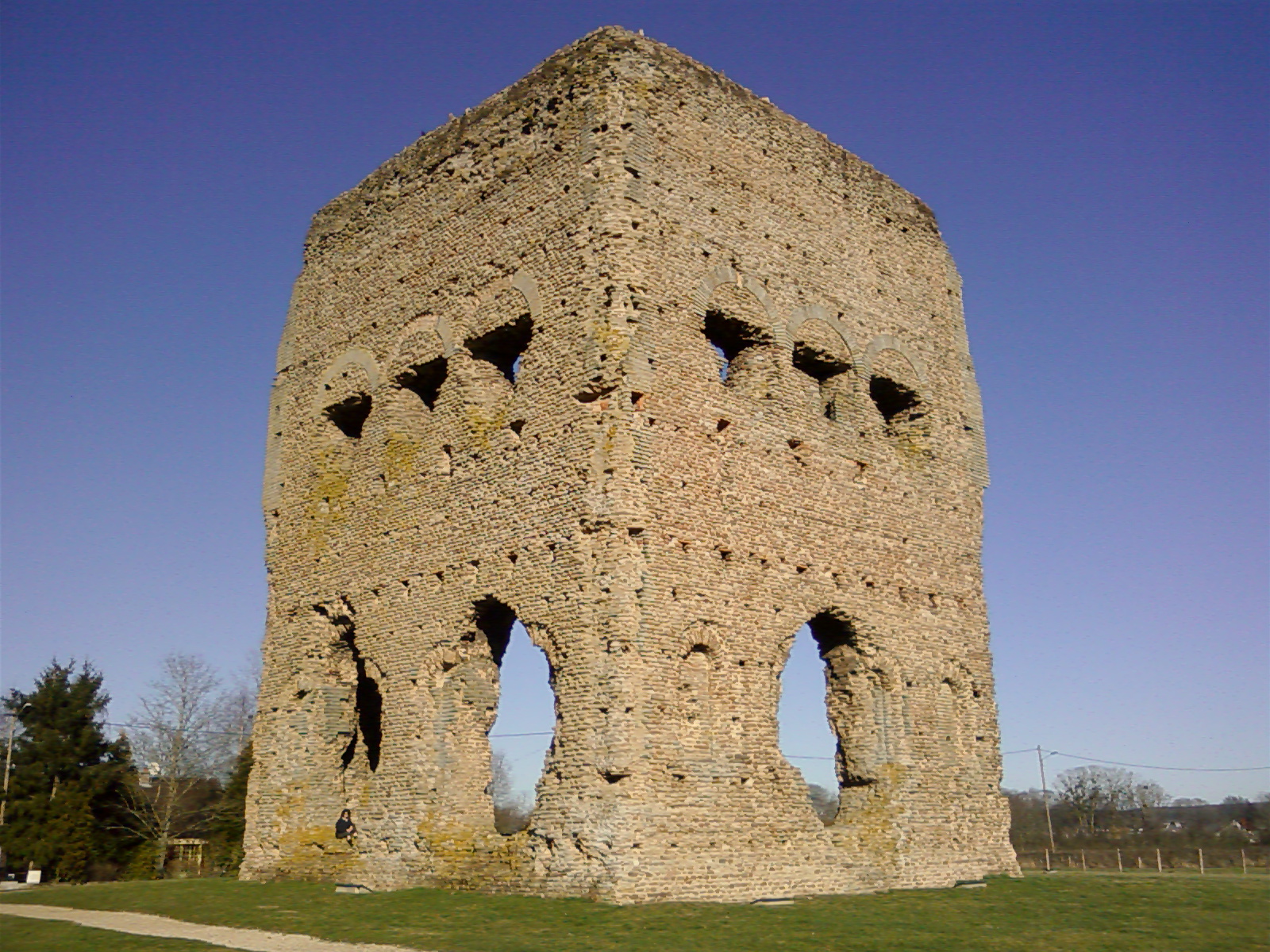|
Childebrand I
Childebrand I (c. 678 – 743 or 751) was a Frankish duke (''dux''), son of Pepin of Heristal and Alpaida, and brother of Charles Martel. He was born in Autun, where he later died. He married Emma of Austrasia and was given Burgundy by his father, becoming a duke. He distinguished himself in the expulsion of the Saracens from Francia alongside his brother when he captured Marseille, one of the largest cities still in Umayyad The Umayyad Caliphate or Umayyad Empire (, ; ) was the second caliphate established after the death of the Islamic prophet Muhammad and was ruled by the Umayyad dynasty. Uthman ibn Affan, the third of the Rashidun caliphs, was also a membe ... hands. He was the patron of the continuator of the '' Chronicle of Fredegar'', as was his son Nibelung I or Nivelon. Levellain believe that Childebrand was actually the half-brother of Charles Martel, related through his mother. His date of death is also contentious, as some sources place his death at 74 ... [...More Info...] [...Related Items...] OR: [Wikipedia] [Google] [Baidu] |
Autun
Autun () is a Subprefectures in France, subprefecture of the Saône-et-Loire Departments of France, department in the Bourgogne-Franche-Comté Regions of France, region of central-eastern France. It was founded during the Principate era of the early Roman Empire by Emperor Augustus as Augustodunum to give a Roman capital to the Gauls, Gallic people Aedui, who had Bibracte as their political centre. In Roman times the city may have been home to 30,000 to 100,000 people, according to different estimates. Nowadays, the Communes of France, commune has a population of about 15,000. Pioneer of the Industrial Revolution in the nineteenth Century with the early exploitation of oil shale and fluorine, since the twentieth century, Autun has experienced a renewed dynamism that has made it the headquarters of several international companies (Dim, Nexans). It contains one of the six French military high schools (Lycée militaire d'Autun). The city, due to its ancient and medieval past, posses ... [...More Info...] [...Related Items...] OR: [Wikipedia] [Google] [Baidu] |
Umayyad Caliphate
The Umayyad Caliphate or Umayyad Empire (, ; ) was the second caliphate established after the death of the Islamic prophet Muhammad and was ruled by the Umayyad dynasty. Uthman ibn Affan, the third of the Rashidun caliphs, was also a member of the clan. The family established dynastic, hereditary rule with Mu'awiya I, the long-time governor of Bilad al-Sham, Greater Syria, who became caliph after the end of the First Fitna in 661. After Mu'awiya's death in 680, conflicts over the succession resulted in the Second Fitna, and power eventually fell to Marwan I, from another branch of the clan. Syria remained the Umayyads' main power base thereafter, with Damascus as their capital. The Umayyads continued the Early Muslim conquests, Muslim conquests, conquering Ifriqiya, Transoxiana, Sind (caliphal province), Sind, the Maghreb and Hispania (al-Andalus). At its greatest extent (661–750), the Umayyad Caliphate covered , making it one of the largest empires in history in terms of ar ... [...More Info...] [...Related Items...] OR: [Wikipedia] [Google] [Baidu] |
Pippinids
The Pippinids and the Arnulfings were two Frankish aristocratic families from Austrasia during the Merovingian period. They dominated the office of mayor of the palace after 687 and eventually supplanted the Merovingians as kings in 751, founding the Carolingian dynasty. The names "Pippinid" and "Arnulfing" are modern conventions, reflecting the families' descent from two contemporaries, Arnulf of Metz (died c. 640) and Pippin of Landen (died 640). The recurrence of the leading name Pippin in the family led the anonymous author of the ''Annals of Metz'' (c. 805) to call the family ''Pippinios'', the earliest known designation for the family.Rosamond McKitterick, ''Charlemagne: The Formation of a European Identity'' (Cambridge University Press, 2008), p. 57n. In a strict sense, the Pippinids are the descendants of Pippin of Landen and the Arnulfings those of Arnulf of Metz. These groups only overlap via the marriage of Arnulf's son Ansegisel and Pippin's daughter Begga and their ... [...More Info...] [...Related Items...] OR: [Wikipedia] [Google] [Baidu] |
Frankish Warriors
Frankish may refer to: * Franks, a Germanic tribe and their culture ** Frankish language or its modern descendants, Franconian languages, a group of Low Germanic languages also commonly referred to as "Frankish" varieties * Francia, a post-Roman state in France and Germany * East Francia, the successor state to Francia in Germany * West Francia, the successor state to Francia in France * Crusaders * Levantines (Latin Christians) Family name * Ernest Frankish (1876–1962), New Zealand cricketer * Keith Frankish (born 1962), British philosopher * Kevin Frankish, Canadian television presenter and media personality * Pat Frankish, British psychologist and psychotherapist * Ronald Frankish (1925–2013), Australian cricketer * Stanley Frankish (1872–1909), New Zealand cricketer See also * Farang, Persian for 'Franks', later used for Western or Latin Europeans; in Arabic 'Faranj' * Franconian (other) * Franks (other) * Name of the Franks * Franks ... [...More Info...] [...Related Items...] OR: [Wikipedia] [Google] [Baidu] |
8th-century Frankish Nobility
The 8th century is the period from 701 (represented by the Roman numerals DCCI) through 800 (DCCC) in accordance with the Julian Calendar. In the historiography of Europe the phrase the long 8th century is sometimes used to refer to the period of circa AD 660–820. The coast of North Africa and the Iberian Peninsula quickly came under Islamic Arab domination. The westward expansion of the Umayyad Empire was famously halted at the siege of Constantinople by the Byzantine Empire and the Battle of Tours by the Franks. The tide of Arab conquest came to an end in the middle of the 8th century.Roberts, J., '' History of the World'', Penguin, 1994. In Europe, late in the century, the Vikings, seafaring peoples from Scandinavia, begin raiding the coasts of Europe and the Mediterranean, and go on to found several important kingdoms. In Asia, the Pala Empire is founded in Bengal. The Tang dynasty reaches its pinnacle under Chinese Emperor Xuanzong. The Nara period begins in J ... [...More Info...] [...Related Items...] OR: [Wikipedia] [Google] [Baidu] |
670s Births
67 may refer to: * 67 (number) * one of the years 67 BC, AD 67, 1967 Events January * January 1 – Canada begins a year-long celebration of the 100th anniversary of Canadian Confederation, Confederation, featuring the Expo 67 World's Fair. * January 6 – Vietnam War: United States Marine Corps and Army of ..., 2067 * "67", a 1992 song by Love Battery from the album '' Between the Eyes'' * 67 (rap group), a drill music group from London * 67 Asia, a main-belt asteroid See also * 67th Regiment (other) * 67th Division (other) * 67 Squadron (other) * 67th Academy Awards {{Numberdis ... [...More Info...] [...Related Items...] OR: [Wikipedia] [Google] [Baidu] |
Half Brother
A sibling is a relative that shares at least one parent with the other person. A male sibling is a brother, and a female sibling is a sister. A person with no siblings is an only child. While some circumstances can cause siblings to be raised separately (such as foster care or adoption), most societies have siblings grow up together. This causes the development of strong emotional bonds, with siblinghood considered a unique type of relationship. The emotional bond between siblings is often complicated and is influenced by factors such as parental treatment, birth order, personality, and personal experiences outside the family. Medically, a full-sibling is a first-degree relative and a half-sibling is a second-degree relative as they are related by 50% and 25%, respectively. Definitions The word ''sibling'' was reintroduced in 1903 in an article in ''Biometrika'', as a translation for the German ''Geschwister'', having not been used since Middle English, specifically 1425. ... [...More Info...] [...Related Items...] OR: [Wikipedia] [Google] [Baidu] |
Nibelung I
The term Nibelung (German) or Niflungr (Old Norse) is a personal or clan name with several competing and contradictory uses in Germanic heroic legend. It has an unclear etymology, but is often connected to the root ''Nebel'', meaning mist. The term in its various meanings gives its name to the Middle High German heroic epic the ''Nibelungenlied''. The most widespread use of Nibelung is used to denote the Burgundian royal house, also known as the Gibichungs (German) or Gjúkingar (Old Norse). A group of royal brothers led by king Gunther or Gunnar, the Gibichungs are responsible for the death of the hero Siegfried or Sigurd and are later destroyed at the court of Attila the Hun (called Etzel in German and Atli in Old Norse). This is the only use of the term attested in the Old Norse legends. In medieval German, several other uses of the term Nibelung are documented besides the reference to the Gibichungs: it refers to the king and inhabitants of a mythical land inhabited by d ... [...More Info...] [...Related Items...] OR: [Wikipedia] [Google] [Baidu] |
Chronicle Of Fredegar
The ''Chronicle of Fredegar'' is the conventional title used for a 7th-century Frankish chronicle that was probably written in Burgundy. The author is unknown and the attribution to Fredegar dates only from the 16th century. The chronicle begins with the creation of the world and ends in AD 642. There are also a few references to events up to 658. Some copies of the manuscript contain an abridged version of the chronicle up to the date of 642, but include additional sections written under the Carolingian dynasty that end with the death of Pepin the Short in 768. The ''Chronicle of Fredegar'' with its ''Continuations'' is one of the few sources that provide information on the Merovingian dynasty for the period after 591 when Gregory of Tours' the ''Decem Libri Historiarum'' finishes. Authorship None of the surviving manuscripts specify the name of the author. The name "Fredegar" (modern French Frédégaire) was first used for the chronicle in 1579 by Claude Fauchet in his ... [...More Info...] [...Related Items...] OR: [Wikipedia] [Google] [Baidu] |
Continuator
A continuator, in literature, is a writer who creates a new work based on someone else's prior text, such as a novel or novel fragment. The new work may complete the older work (as with the numerous continuations of Jane Austen's unfinished novel '' Sanditon''), or may try to serve as a sequel or prequel to the older work (such as Alexandra Ripley's '' Scarlett'', an authorized continuation of Margaret Mitchell's '' Gone with the Wind''). This phenomenon differs from those authors who, because they share a common culture, use characters or themes from a common cultural stock. History The development of European classical literature out of the common stock of oral tradition proved conducive to reworkings, revisions, and satires. Numerous writers of Greece's golden age revived and reworked stories of the Trojan War and Greek mythology, although they were not strictly continuators as, for the most part, they did not invent or even extrapolate much from the received stories, choosin ... [...More Info...] [...Related Items...] OR: [Wikipedia] [Google] [Baidu] |
Marseille
Marseille (; ; see #Name, below) is a city in southern France, the Prefectures in France, prefecture of the Departments of France, department of Bouches-du-Rhône and of the Provence-Alpes-Côte d'Azur Regions of France, region. Situated in the Provence region, it is located on the coast of the Mediterranean Sea, near the mouth of the Rhône river. Marseille is the List of communes in France with over 20,000 inhabitants, second-most populous city proper in France, after Paris, with 873,076 inhabitants in 2021. Marseille with its suburbs and exurbs create the Aix-Marseille-Provence Metropolis, with a population of 1,911,311 at the 2021 census. Founded by Greek settlers from Phocaea, Marseille is the oldest city in France, as well as one of Europe's List of oldest continuously inhabited cities, oldest continuously inhabited settlements. It was known to the ancient Greeks as ''Massalia'' and to ancient Romans, Romans as ''Massilia''. Marseille has been a trading port since ancient ... [...More Info...] [...Related Items...] OR: [Wikipedia] [Google] [Baidu] |




